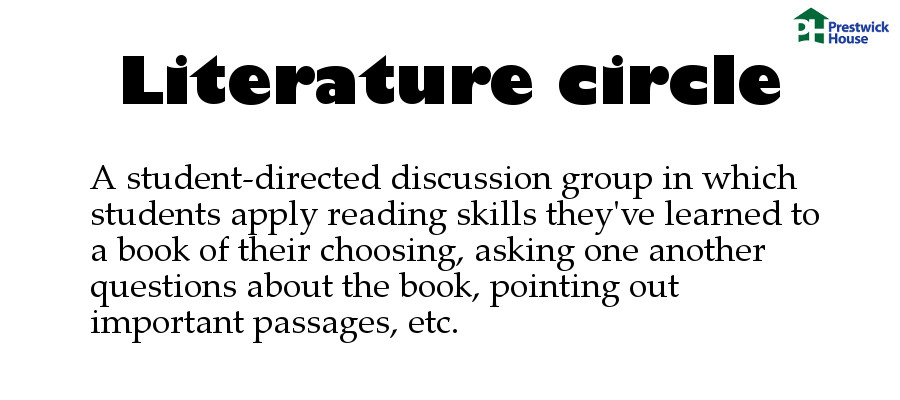What is a literature circle?
A literature circle is a student-directed sort of book club, in which students discuss a book they've been reading. Students choose the book themselves, and students lead discussions and ask one another questions about the book.
What are literature circles good for?
Literature circles are great opportunities for students to apply the reading skills they've already learned. So, if your students have been learning about metaphor and simile, a student might point out an important metaphor or simile in the text and start a discussion about that use of figurative language.
Because the above scenario might not be one that occurs organically (in the beginning, at least) some proponents of literature circles suggest assigning a role or roles to each member of the circle. Thus, one student becomes the discussion facilitator or moderator, one focuses on vocabulary, one focuses on figurative language, and so on. These roles are a form of temporary scaffolding and should be removed once students are comfortable discussing and analyzing literature in a group setting.
Because literature circles are student-driven, they're fantastic vehicles for helping your pupils take charge of their own learning.
As a teacher, what's my role?
Your role is primarily to get the ball rolling, so to speak. At the first meeting of the literature circle, you explain how it will work, assign roles (again, an optional step), and lead the first discussion.
In subsequent meetings, you'll step back from the discussion, ceding a bit more control to students each time, until they're taking care of business on their own. This is definitely a "guide on the side" sort of situation—contribute feedback and make sure your students are on the right path, but give them as much opportunity to discover the text by themselves as possible.
What about assessments?
Assessments of literature circles can take many forms, including but not limited to self-assessments, peer assessments, projects, blogs, and student-teacher conferences. Most assessments associated with literature circles should be formative assessments—feedback is an essential part of literature circles.
Questions? Get in touch!
If you'd like to talk to one of our curriculum specialists, give us a call at 800-932-4593 and one of our friendly Customer Service reps will connect you. Or you can email us—put "literature circle" in the subject line and we'll get back to you soon.
